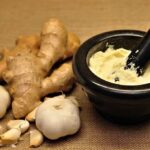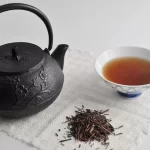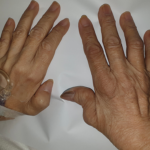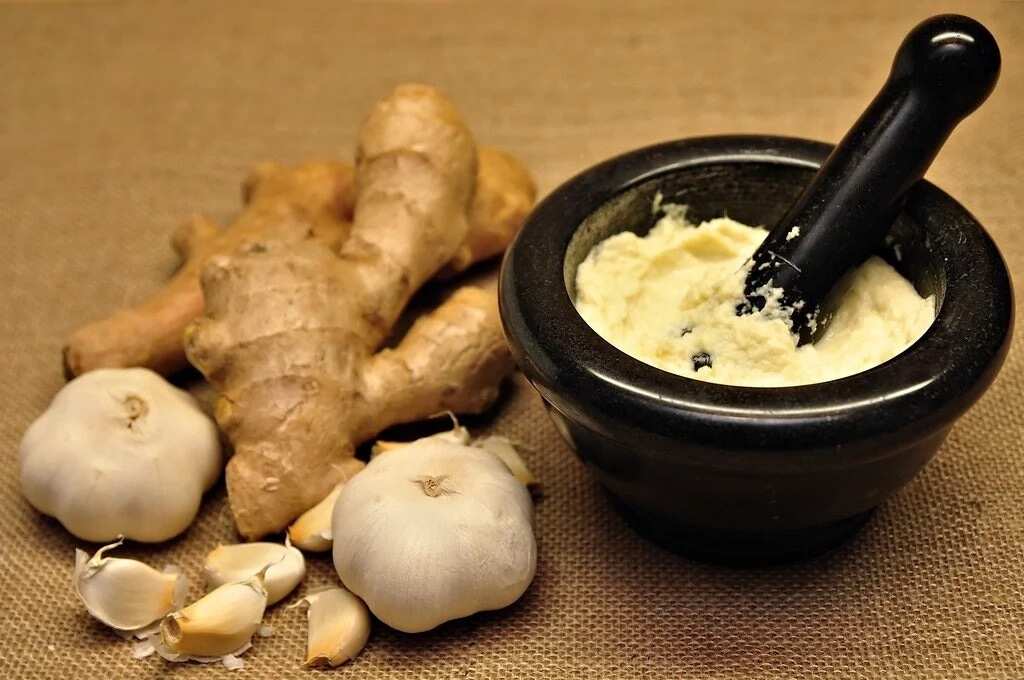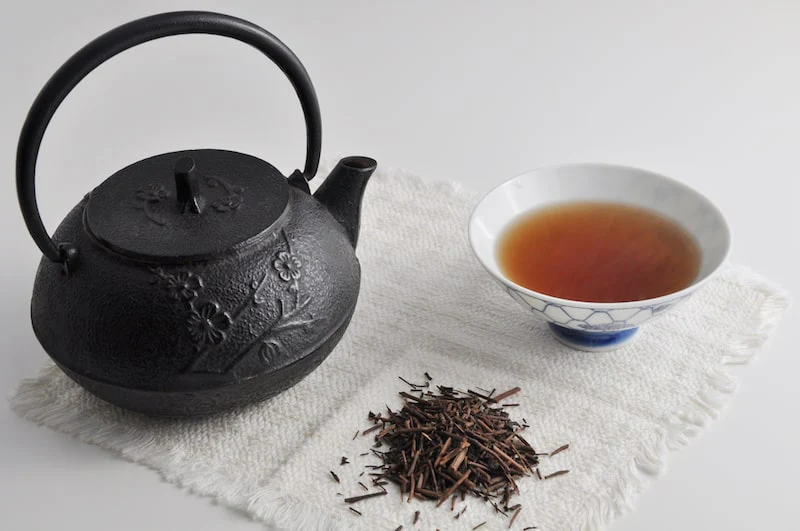Managing Symptoms Naturally
It is imperative to note the remedies for rheumatoid arthritis as living with rheumatoid arthritis (RA) can be incredibly challenging. The chronic pain, stiffness, and inflammation can significantly impact your daily life.
It can feel isolating and overwhelming at times. But you’re not alone. Millions of people worldwide are living with RA, and there are effective strategies to manage the condition and improve your well-being.
What is Rheumatoid Arthritis (RA)?
RA is an autoimmune disease. This means your immune system, which is designed to fight off invaders like bacteria and viruses, mistakenly attacks healthy tissues in your body. In the case of RA, the immune system targets the synovial membrane, the lining of your joints. This attack leads to inflammation, pain, swelling, and eventually joint damage.
The Impact of RA
The impact of RA goes far beyond physical discomfort. The constant pain and stiffness can make it difficult to perform everyday tasks like dressing, cooking, or cleaning. It can also affect your ability to work, participate in hobbies, and maintain an active social life. However, there are remedies for rheumatoid arthritis.
This can lead to feelings of frustration, isolation, and depression. Additionally, RA can cause fatigue, which further limits your energy levels and overall well-being.
Traditional Treatment Options
Doctors typically prescribe medications to manage RA. These medications can be broadly categorized into two groups:
- Disease-modifying antirheumatic drugs (DMARDs): These medications slow the progression of RA and reduce inflammation. They work by suppressing the overactive immune response responsible for attacking your joints. Common DMARDs include methotrexate, leflunomide, and sulfasalazine.
- Biologics: These are newer and more targeted medications that block specific proteins involved in the inflammatory process. Biologics can be very effective in controlling RA symptoms, but they are also more expensive than DMARDs.
These medications can be very effective in managing RA, but they can also come with side effects. It’s crucial to discuss the potential benefits and risks of any medication with your doctor to determine the best course of treatment for you.
SEE ALSO: Benefits of Cloves to The Vagina
Importance (Remedies for Rheumatoid Arthritis)
Natural remedies can be a valuable addition to your RA management plan. When used alongside traditional treatments, they can help:
- Reduce pain and inflammation: Certain dietary changes, supplements, and physical therapies can offer natural pain relief and reduce inflammation in the joints.
- Improve joint function and mobility: Exercise and physical therapy can help maintain flexibility, range of motion, and strength in the joints, making it easier to perform daily activities.
- Enhance sleep quality: Chronic pain and inflammation can disrupt sleep patterns. Relaxation techniques and certain dietary changes can promote better sleep quality, which is essential for overall well-being.
- Manage stress and anxiety: Living with a chronic condition like RA can be stressful. Relaxation techniques and healthy lifestyle habits can help manage stress and anxiety, which can worsen RA symptoms.
- Boost overall well-being: By incorporating natural remedies into your daily routine, you can improve your energy levels, mood, and overall quality of life.
Different Categories of Natural Remedies for RA
There are a variety of natural remedies that can be helpful for managing RA symptoms. Here’s a closer look at some of the most promising approaches:
The Anti-inflammatory Diet for Rheumatoid Arthritis
While there’s no one-size-fits-all diet for RA, research suggests that an anti-inflammatory diet can significantly improve symptoms and overall well-being. This dietary approach emphasizes whole, unprocessed foods rich in nutrients that can help combat inflammation and promote joint health.
Here’s a breakdown of the key components to follow so as to gain the remedies for rheumatoid arthritis:
Foods to Emphasize:
- Fruits and Vegetables: Aim for a rainbow on your plate! Fruits and vegetables are loaded with antioxidants and phytonutrients, natural compounds with potent anti-inflammatory effects. They also provide essential vitamins, minerals, and fiber, all crucial for overall health.
- Whole Grains: Choose whole grains like brown rice, quinoa, oats, barley, and whole-wheat bread over refined grains like white bread and pasta. Whole grains are packed with fiber, which helps regulate blood sugar levels and may reduce inflammation. Fiber also promotes gut health, which can indirectly influence inflammation throughout the body.
- Healthy Fats: Don’t shy away from healthy fats! Include sources like olive oil, avocado, fatty fish (salmon, tuna, sardines), nuts (almonds, walnuts, flaxseeds), and chia seeds in your diet. These fats provide essential fatty acids with anti-inflammatory properties and support heart health.
YOU MAY LIKE: Health Benefits of Sabudana
Foods to Limit:
- Processed Foods: Processed foods are often the hidden culprits behind chronic inflammation. They are typically loaded with unhealthy fats (trans fats, saturated fats), added sugars, refined carbohydrates, and sodium. These components can all contribute to inflammation and worsen RA symptoms. Additionally, processed foods are generally low in nutrients and fiber, which can further hinder your body’s ability to combat inflammation.
- Examples of processed foods to limit: pre-packaged meals, sugary cereals, instant noodles, processed meats (hot dogs, sausages, deli meats), fried foods, baked goods (cakes, cookies, pastries).
- Sugary Drinks: Sugary drinks like soda, juice, sports drinks, and sweetened coffee beverages are a concentrated source of sugar. Consuming excessive amounts of sugar can spike blood sugar levels and promote systemic inflammation throughout the body. Opt for water, unsweetened tea, or black coffee instead. These beverages keep you hydrated without the added sugar and inflammatory effects.
- Red Meat: While red meat can be a good source of protein, studies suggest it may worsen RA symptoms. Red meat is generally higher in saturated fat compared to other protein sources, and saturated fat may contribute to inflammation. Limit red meat consumption and opt for lean protein alternatives like chicken, fish, beans, lentils, and tofu. These options provide protein without the potentially inflammatory effects of red meat.
Remember: Regarding remedies for rheumatoid arthritis, consistency is key! By incorporating these dietary principles into your daily routine, you can create a sustainable eating pattern that helps manage RA symptoms and promote overall well-being. Consult a registered dietitian or nutritionist for personalized guidance on tailoring this anti-inflammatory approach to your specific needs and preferences.
- Supplements with Anti-inflammatory Properties: Some supplements may offer additional benefits when used alongside a healthy diet. Here are a few examples with promising research:
- Fish Oil: Rich in omega-3 fatty acids, particularly EPA and DHA, which have well-documented anti-inflammatory properties. Studies suggest fish oil can help reduce pain and stiffness in RA patients.
- Turmeric: Contains curcumin, a potent anti-inflammatory compound. Curcumin has been shown to be as effective as some medications in reducing pain and inflammation in RA, although more research is needed.
- Boswellia: This herb, also known as Indian frankincense, has shown promise in reducing pain and inflammation in RA. Similar to curcumin, more research is warranted.
- Green Tea Extract: Contains antioxidants called catechins with potential anti-inflammatory effects. Early studies suggest green tea extract may be helpful in managing RA symptoms, but further research is needed.
Important Note: It’s crucial to consult with your doctor before starting any supplements to avoid interactions with medications. Some supplements can interfere with the effectiveness of certain medications or have unintended side effects.

- Exercise and Physical Therapy
The Importance of Exercise for RA:
On remedies for rheumatoid arthritis, regular exercise is essential for managing RA symptoms, even though it might seem counterintuitive when you’re experiencing pain and stiffness. Here’s why exercise is so beneficial:
- Reduces pain and stiffness: Regular exercise helps improve blood flow to the joints, which can reduce pain and stiffness. Exercise also helps maintain muscle strength and flexibility, which can further reduce pain and improve joint function.
- Improves joint flexibility and range of motion: Gentle exercises can help stretch and loosen stiff joints, improving your range of motion and making it easier to perform daily activities.
- Strengthens muscles around the joints for better support: Strong muscles around the joints provide better support and stability, reducing stress on the joints themselves.
- Maintains a healthy weight: Excess weight can put additional strain on your joints. Exercise can help you maintain a healthy weight, which can significantly improve mobility and reduce pain.
- Boosts mood and energy levels: Exercise releases endorphins, hormones that have mood-boosting and pain-relieving effects. Regular physical activity can also improve sleep quality, leading to increased energy levels.
Recommended Exercises for RA:
Focus on low-impact exercises that are gentle on your joints. Here are some excellent options to consider for remedies for rheumatoid arthritis:
- Walking: A simple and effective way to improve cardiovascular health, joint mobility, and overall well-being. Start with short walks and gradually increase the duration and intensity as tolerated.
- Swimming: The buoyancy of water provides excellent support for your joints while allowing for a full-body workout. Swimming is a great way to improve cardiovascular health, muscle strength, and flexibility with minimal impact on your joints.
- Yoga and Tai Chi: These mind-body practices combine gentle stretching exercises with relaxation techniques. Yoga and Tai Chi can improve flexibility, balance, and stress management, all of which are beneficial for managing RA.
Physical Therapy:
A physical therapist can design a personalized exercise program tailored to your specific needs and limitations. They can also teach you techniques to:
- Improve joint function
- Manage pain during daily activities
- Use assistive devices like canes or walkers safely and effectively
- Heat and Cold Therapy
Both heat and cold therapy can be helpful in managing RA pain and inflammation:
- Heat: Apply a heating pad or warm compress to sore joints to increase blood flow, relax muscles, and reduce stiffness. Heat therapy can be especially helpful before exercise to loosen stiff joints and improve flexibility.
- Cold: Use a cold compress or ice pack to reduce swelling and inflammation, especially after periods of activity or during a flare-up. Cold therapy can also help numb pain temporarily.
Important Note: Always wrap a thin towel around the heat or cold source to prevent skin irritation. Never apply extreme temperatures directly to your skin. Limit heat therapy sessions to 15-20 minutes at a time and cold therapy to 10-15 minutes at a time.
- Relaxation Techniques
Stress can worsen RA symptoms. The body’s stress response triggers the release of hormones like cortisol, which can contribute to inflammation. Relaxation techniques can help manage stress and improve your overall well-being. Here are a few suggestions:
- Deep Breathing Exercises: Focusing on slow, deep breaths activates the relaxation response in your body and reduces stress hormones. Deep breathing exercises are a simple and effective way to manage stress in the moment.
- Meditation: Mindfulness meditation practices can help quiet your mind, reduce anxiety, and improve sleep quality. Meditation can take some practice, but there are many resources available online and through apps to get you started.
- Progressive Muscle Relaxation: This technique involves tensing and relaxing different muscle groups in your body, promoting relaxation and reducing tension. Progressive muscle relaxation can be a helpful tool for managing pain and improving sleep quality.
Additional Considerations and Lifestyle Tips
- Importance of Quality Sleep: Aim for 7-8 hours of quality sleep each night. Adequate sleep helps reduce pain perception, improves mood, and boosts the immune system’s ability to fight inflammation. Here are some tips to promote better sleep:
- Establish a regular sleep schedule and stick to it as much as possible, even on weekends.
- Create a relaxing bedtime routine that might include taking a warm bath, reading a book, or practicing relaxation techniques.
- Make sure your bedroom is dark, quiet, and cool.
- Avoid caffeine and alcohol close to bedtime, as they can disrupt sleep patterns.
- See a doctor if you experience chronic sleep problems like sleep apnea.
- Maintaining a Healthy Weight: Excess weight can put additional strain on your joints, worsening pain and stiffness. Losing weight, even a moderate amount, can significantly improve mobility and function in RA patients. Aim for a healthy weight through a combination of a balanced diet and regular exercise.
- Assistive Devices: Consider using assistive devices like canes, walkers, or braces to help with daily activities and reduce stress on your joints. A physical therapist can help you choose the right assistive devices for your needs and teach you how to use them safely and effectively.
- Joining a Support Group: Connecting with others who understand the challenges of RA can provide valuable emotional support and a sense of community. Support groups can be a great place to share experiences, learn coping strategies, and feel less alone in your journey with RA. There are online and in-person support groups available. Ask your doctor or search online for resources in your area.
Conclusion on Remedies for Rheumatoid Arthritis
Living with rheumatoid arthritis can be incredibly challenging, as the condition can cause pain, stiffness, swelling, and fatigue, making even simple daily tasks difficult.
However, there are various remedies and strategies available to help manage the symptoms and improve the overall quality of life for those living with this autoimmune disease.
Medication plays a pivotal role in the treatment of rheumatoid arthritis. Nonsteroidal anti-inflammatory drugs (NSAIDs), such as ibuprofen and naproxen, are commonly used to alleviate pain and reduce inflammation in the joints.
Disease-modifying antirheumatic drugs (DMARDs), such as methotrexate and hydroxychloroquine, are often prescribed to slow down the progression of the disease and prevent further joint damage. In more severe cases or when traditional treatments are ineffective, biologic DMARDs may be recommended.
These medications target specific components of the immune system to help control inflammation and reduce symptoms.
Beyond medication, lifestyle modifications can also play a crucial role in managing rheumatoid arthritis. Regular exercise is essential for maintaining joint flexibility, muscle strength, and overall physical health. Low-impact activities such as walking, swimming, or yoga can be particularly beneficial.
A balanced diet rich in fruits, vegetables, whole grains, and omega-3 fatty acids can help reduce inflammation and support overall well-being. Additionally, adequate rest and stress management techniques, such as meditation or deep breathing exercises, can help alleviate fatigue and minimize the impact of stress on the body.
In addition to conventional medical treatments and lifestyle modifications, many individuals with rheumatoid arthritis also explore alternative therapies and complementary treatments to supplement their care.
Regarding remedies for rheumatoid arthritis, acupuncture, massage therapy, heat or cold therapy, and the use of supplements such as turmeric or fish oil are examples of complementary approaches that some people find helpful in managing their symptoms. It’s essential to work closely with a healthcare professional to develop a comprehensive treatment plan tailored to individual needs and preferences.
By incorporating a combination of medication, lifestyle changes, and complementary therapies, individuals with rheumatoid arthritis can effectively manage their symptoms, reduce pain, and improve their overall quality of life.
Managing RA requires a holistic approach that combines traditional treatments with natural remedies and lifestyle modifications. By incorporating these natural remedies into your daily routine, you can effectively manage symptoms, improve your quality of life, and take an active role in your well-being.
Remember, discuss any changes to your treatment plan with your doctor to ensure they are safe and appropriate for you.
Call to Action:
- Share your experiences with natural remedies for RA in the comments section below. What has worked well for you in managing your symptoms?
- We encourage you to download: “Living Well with RA: A Guide to Exercise and Nutrition” for additional tips, exercises, and recipes to help you manage your RA naturally. You can find the downloadable guide on the internet.

A graduate of Computer Science and Information Management Technology. Diploma – Caregiving, Certificates – Dementia and Diabetes Awareness and Management. A researcher, blogger, songwriter, singer and acoustic guitarist. Born in an environment where natural talents such as healing are imparted at our natural birth. This natural talents of healing is the result of our genetic inheritance and the training from family environment.



